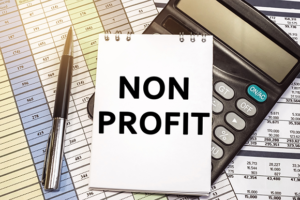When you apply at the IRS to become eligible as a nonprofit that doesn’t need to pay taxes, there are several important aspects to keep in mind. Although most types of nonprofits are not necessarily required to pay taxes, there are many exceptions, and it ultimately depends on the specific circumstances involved and on your organization’s operations, whether you will be required to pay taxes or even to file a report.

Organizations Exempt from Taxes
Federal law allows a variety of educational, healthcare, religious, and other nonprofit organizations to apply for tax exemption. Indeed, there are 28 categories of nonprofits recognized by the IRS as qualifying for tax exemptions. As long as an organization fits the profile of one of these cases, its income will—in most instances—be exempt from taxation.
For example, if you own a religious, scientific or educational organization, a fraternal society, a cemetery company, or a childcare organization, you will be exempt from taxes in most cases. Exceptions may apply, of course, in specific instances, such as for Fraternal Beneficiary Societies or Domestic Fraternal Associations, if used for any of the 501(c)3 purposes.
Exemptions also apply in the case of federal credit unions and credit counseling organizations, as well as other nonprofits founded under the Act of Congress.
Vital Details on Tax Exemptions
Of course, not all nonprofits can avoid paying taxes. A few such examples include:
- Organizations that provide health insurance coverage for high-risk individuals.
- Political organizations.
- Various labor organizations, including farmers’ cooperatives or agricultural and horticultural organizations.
- Trusts or title-holding corporations that have more than one parent corporation.
- Workers’ reinsurance organizations sponsored by the state.
As most of these types of institutions do need to pay taxes, they are also required to submit application forms and reports, in most cases having to self-declare or file Form 1024, as well as submit a Form 990 or Form 990-EZ, depending on the type of organization in question. More information is available on the nonprofit section of the IRS website.
To learn more about how our firm can serve your nonprofit organization, don’t hesitate to contact Kathy Corcoran at (302) 254-8240.
©2024

